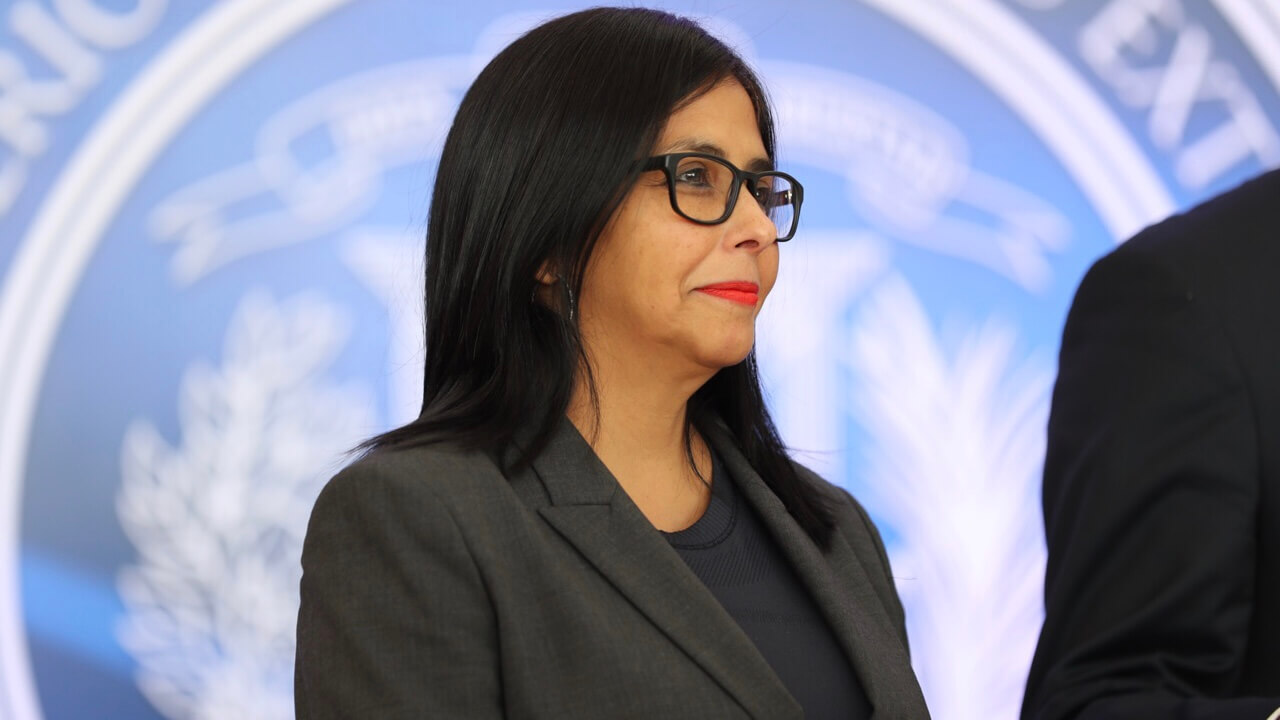Venezuelan Vice President Urges Chinese Government to Increase Imports of Venezuelan Oil
Photo: Flickr.
According to a report by Bloomberg, during a visit to the People’s Republic of China by a Venezuelan delegation led by Vice President Delcy Rodríguez, the senior official requested that the Chinese government increase its oil imports. This request comes in the context of the withdrawal of Chevron and other international energy operators from Venezuela, a move prompted by the United States.
During her visit to China, Vice President and Energy Minister Delcy Rodríguez met with the Vice President of the People’s Republic of China, Han Zheng, and with the president of China National Petroleum Corp. In these meetings, the Venezuelan official urged China to increase its oil purchases and to provide diluent crude, which is essential for processing and exporting Venezuelan tar oil.
Regarding the visit to the Asian country, Vice President Rodríguez stated that the delegation is reaching a new level in the agreements to be signed, including some that had previously been established. She also mentioned that Venezuela seeks to reaffirm its relationship with China and define a new work agenda. However, during a public address alongside Nicolás Maduro, she indicated that the agenda and topics discussed during the visit could not be disclosed as they are confidential and reserved.
Currently, the People’s Republic of China is renegotiating the terms and clauses of its contracts with Venezuela. Specifically, the Asian country is requesting a greater discount on oil imports.
Meanwhile, the Bolivarian Republic of Venezuela is in a weak strategic position, leaving it vulnerable in several areas. This is partly due to the U.S. government’s strategy against Nicolás Maduro’s regime, which focuses on targeting the oil sector, the country’s main source of economic revenue.
In this context, U.S. President Donald Trump has referred to the Venezuelan leader as an “extraordinary threat” to his country’s national security. As a result, Trump has begun imposing high tariffs on countries that import Venezuelan oil, complicating crude export and import negotiations with Venezuela’s allied nations. However, it is unclear whether additional tariffs will be imposed on the People’s Republic of China for its purchase of Venezuelan oil.
Additionally, the U.S. government revoked energy licenses from international companies with operations in Venezuela. Among the most prominent are Eni SpA, Chevron, Maurel & Prom, and Repsol SA.
As a result of these new policies, the Venezuelan economy is among the most affected, with an unprecedented devaluation of its currency that could mark the beginning of a return to hyperinflation and endanger the modest economic stabilization the country has recently experienced, based on the use of the U.S. dollar.
The country’s economy is also expected to contract again, something that has not happened since 2020. Moreover, due to the depletion of the Central Bank’s liquid reserves and the fact that oil revenues have been key to supplying dollars in the official market, the current decline of that sector could lead to a shortage of this currency.
In response to Vice President Rodríguez’s requests, neither the Venezuelan presidential press office nor Petróleos de Venezuela S.A. issued any statements about the outcomes of the visit. Similarly, the Ministry of Foreign Affairs in Beijing did not comment on the Venezuelan delegation’s requests, although this could be due to the national holidays beginning on May 1.
Nevertheless, in an apparent attempt to avoid international scrutiny from the United States and other countries, approximately four vessels resembling decommissioned ships, which would likely avoid attracting attention, departed from Venezuela’s oil export terminals in Amuay and José, according to data from Starboard Maritime Intelligence.
It is worth noting that in recent months, the People’s Republic of China had already become the leading importer of Venezuelan oil, with ten tankers transporting approximately 461,000 barrels per day to its processing plants.
Additionally, it is known that due to the large loans granted by China to Venezuela, which remain unpaid and total around $60 billion in credits from state-owned banks up to 2015, between 5% and 10% of Venezuelan oil exports may be allocated to repaying that debt, which is backed by the country’s crude.
Last but not least, it is worth mentioning that the history of loans between the two nations dates back to the government of Hugo Chávez, when in 2007, the People’s Republic of China provided significant funding for oil and infrastructure projects in the South American country.
Main Source:
Venezuela Pleads for China to Buy Oil as Trump Kicks Chevron Out – Bloomberg
Related News:
After Chevron’s exit, Venezuela seeks alliances with China and Turkey
China rejects U.S. pressure on countries that purchase Venezuelan oil
You may be interested in:

